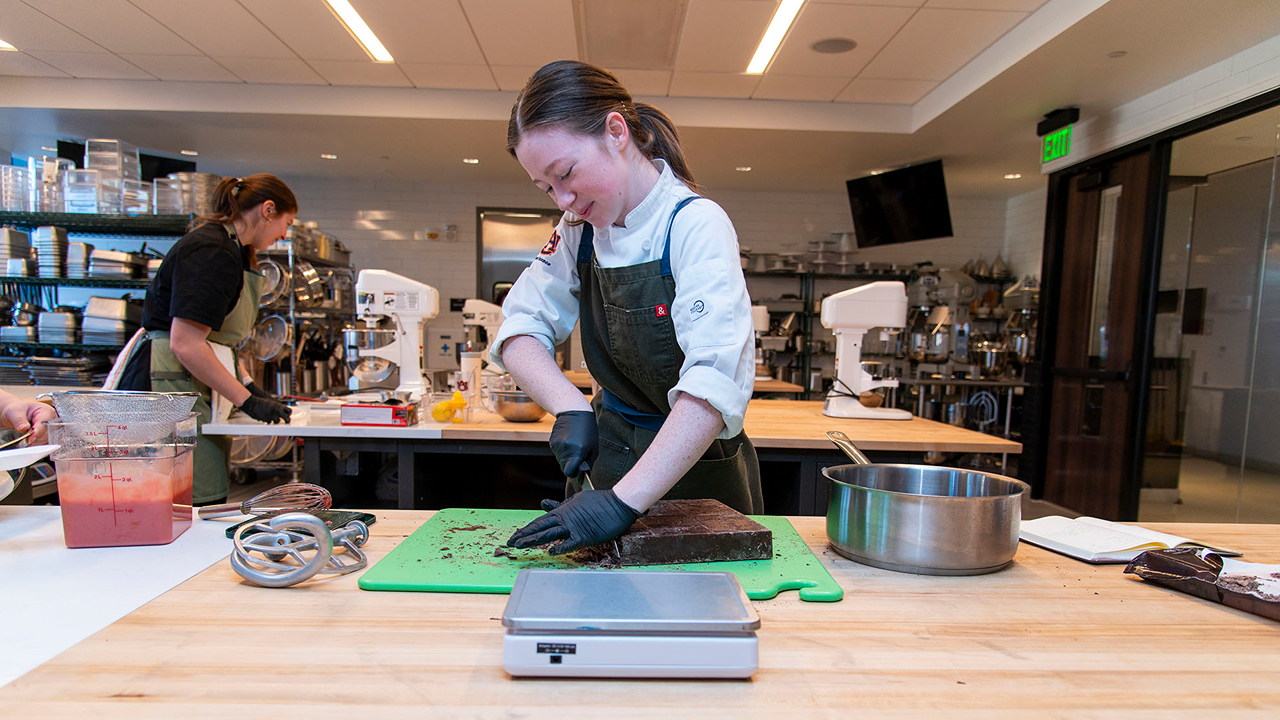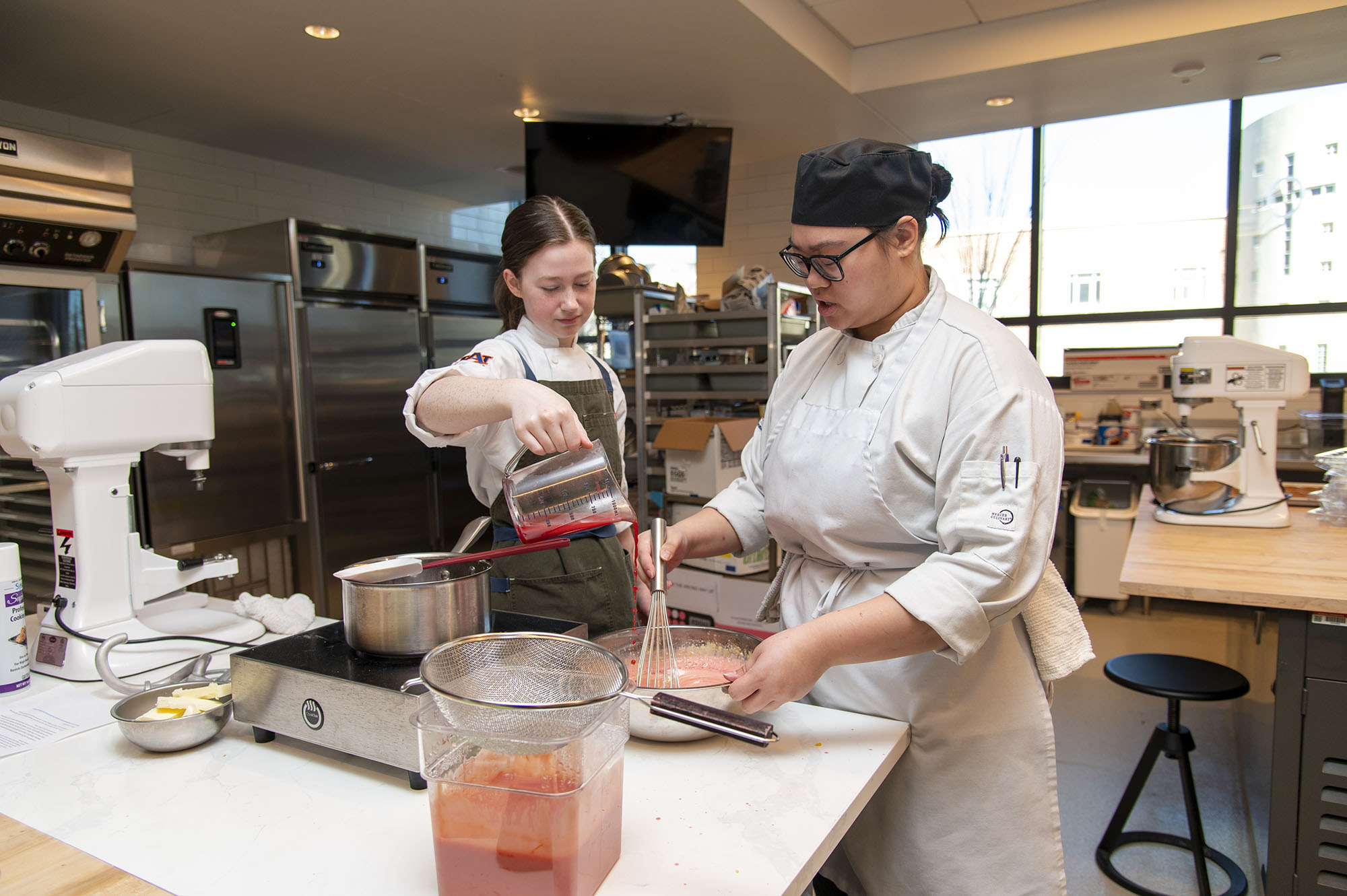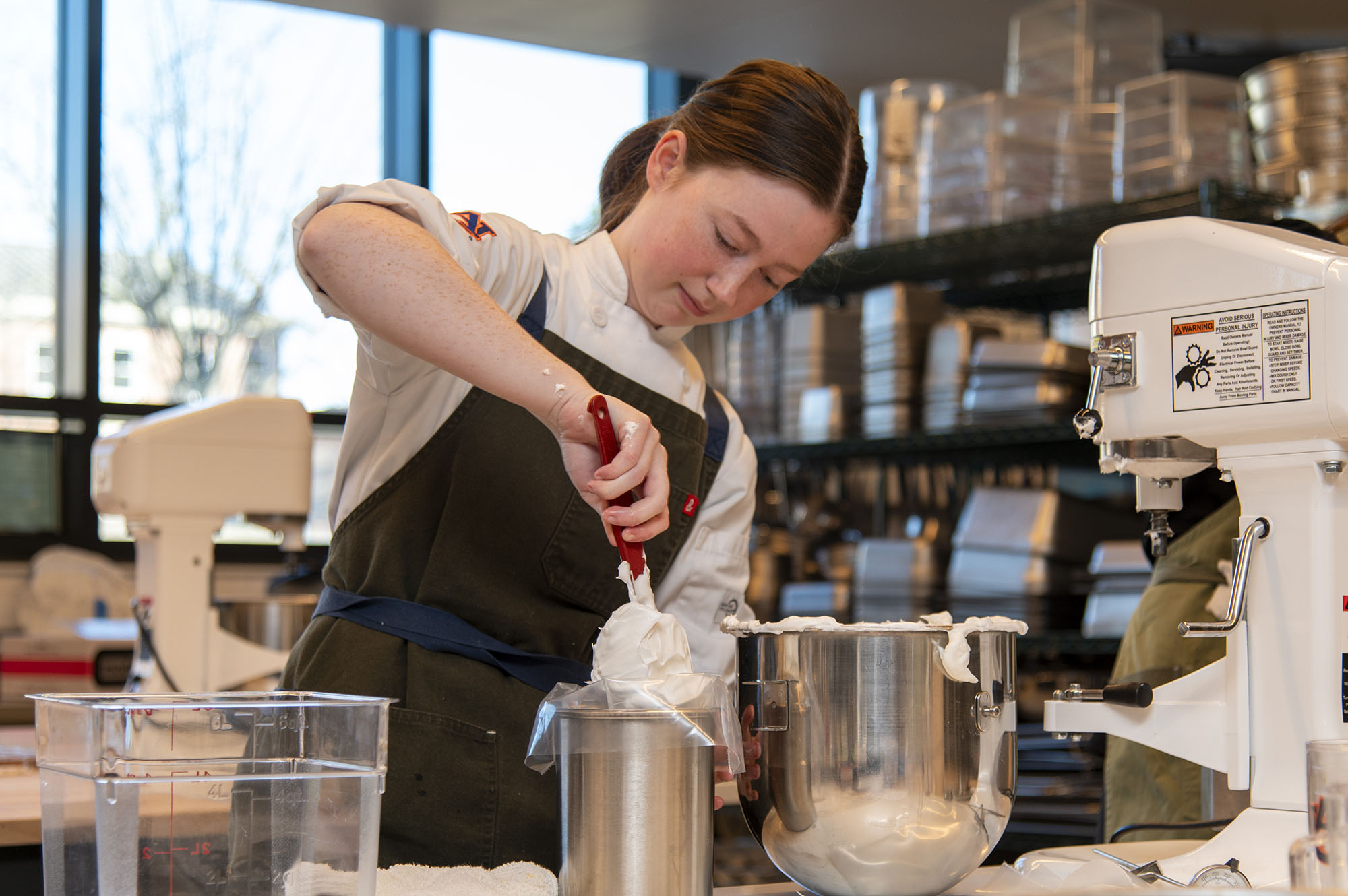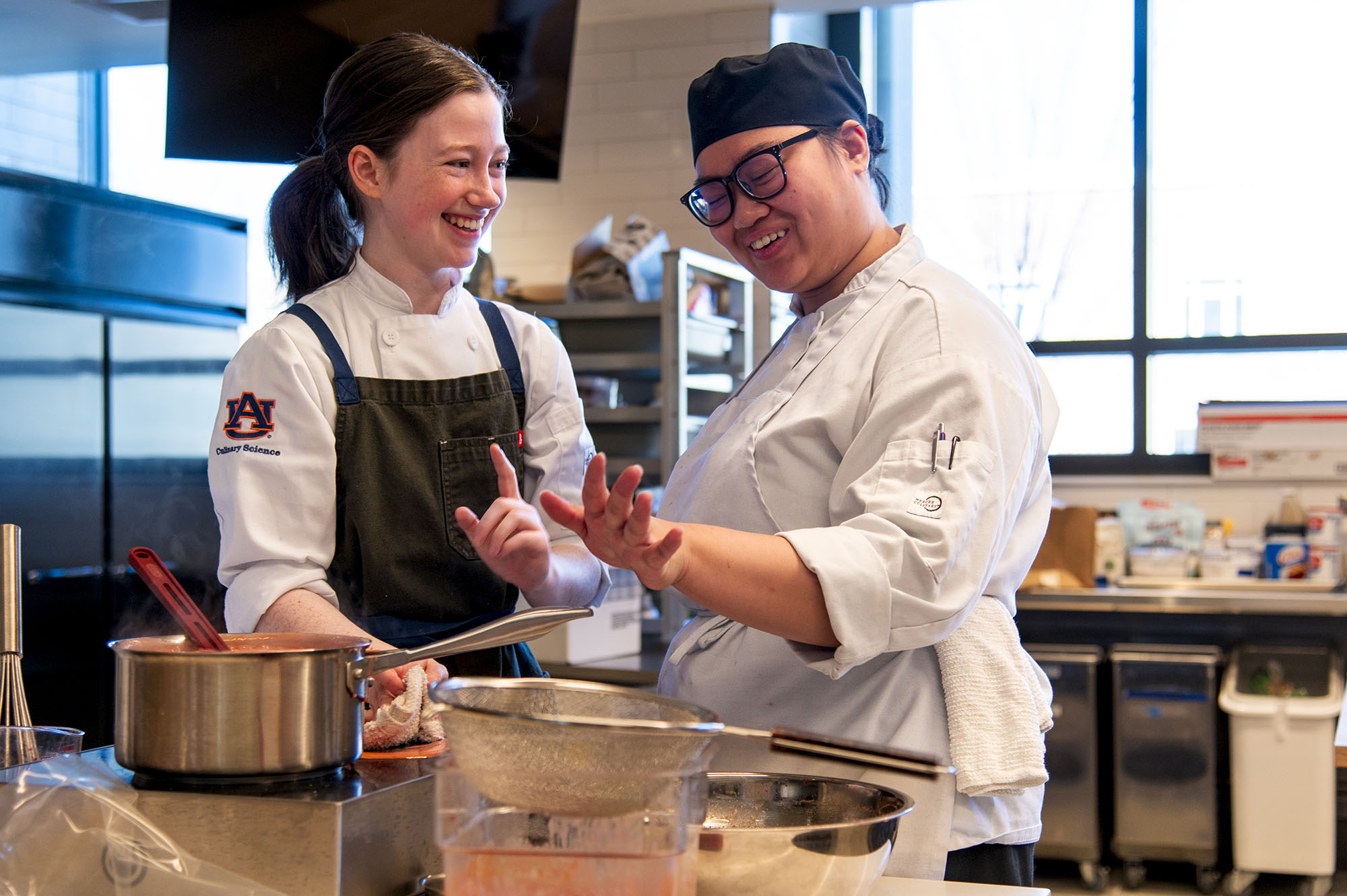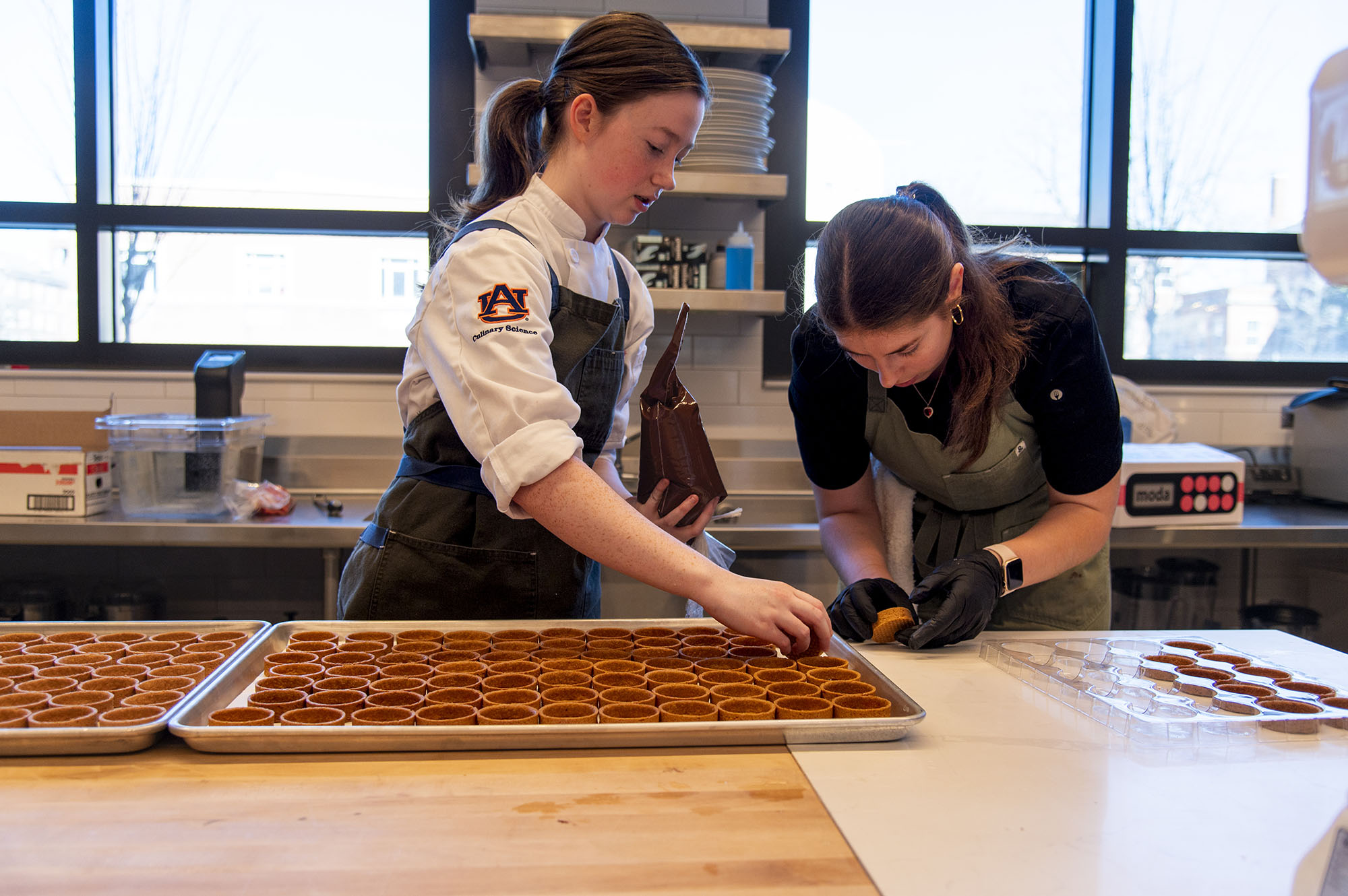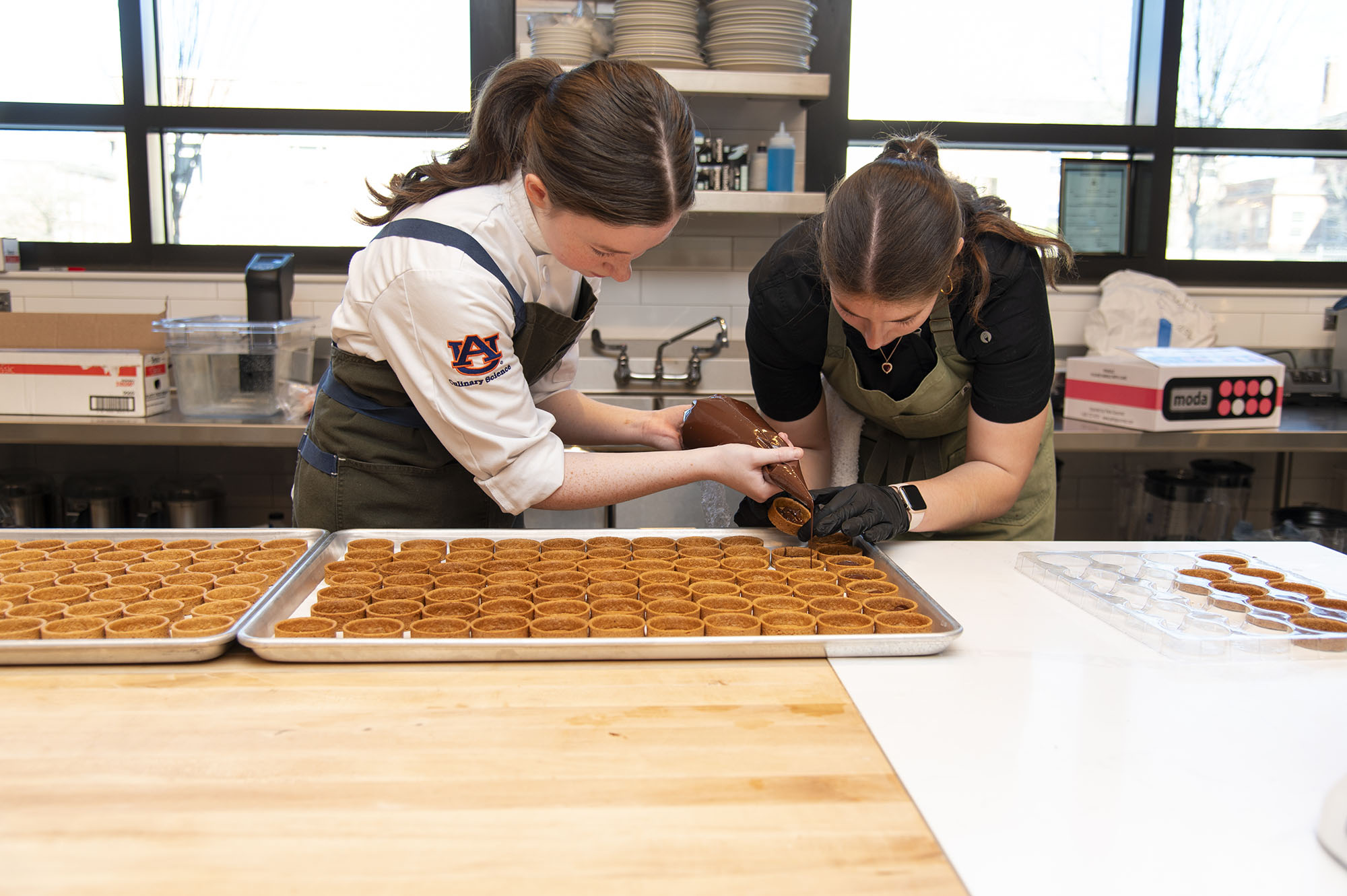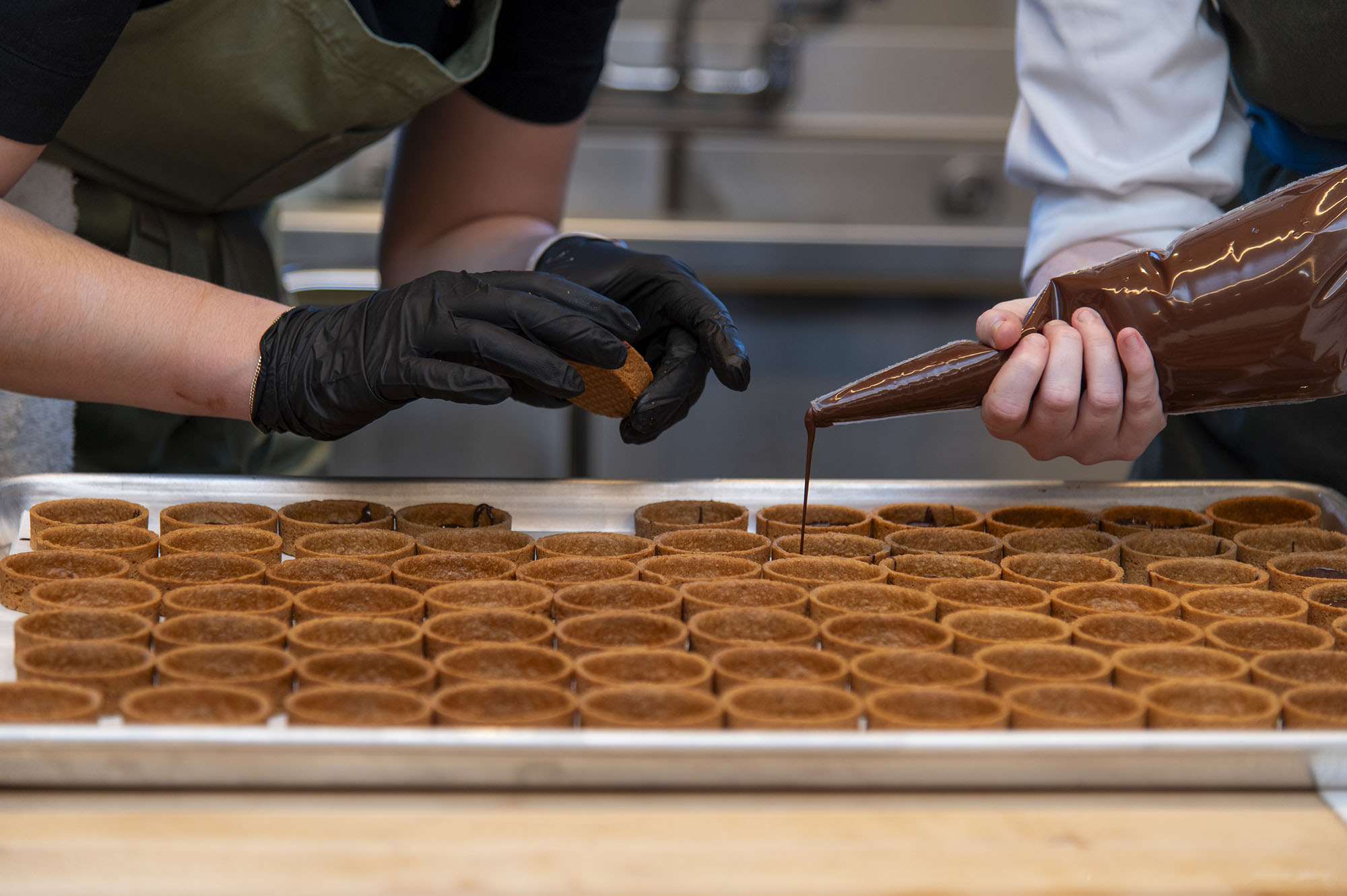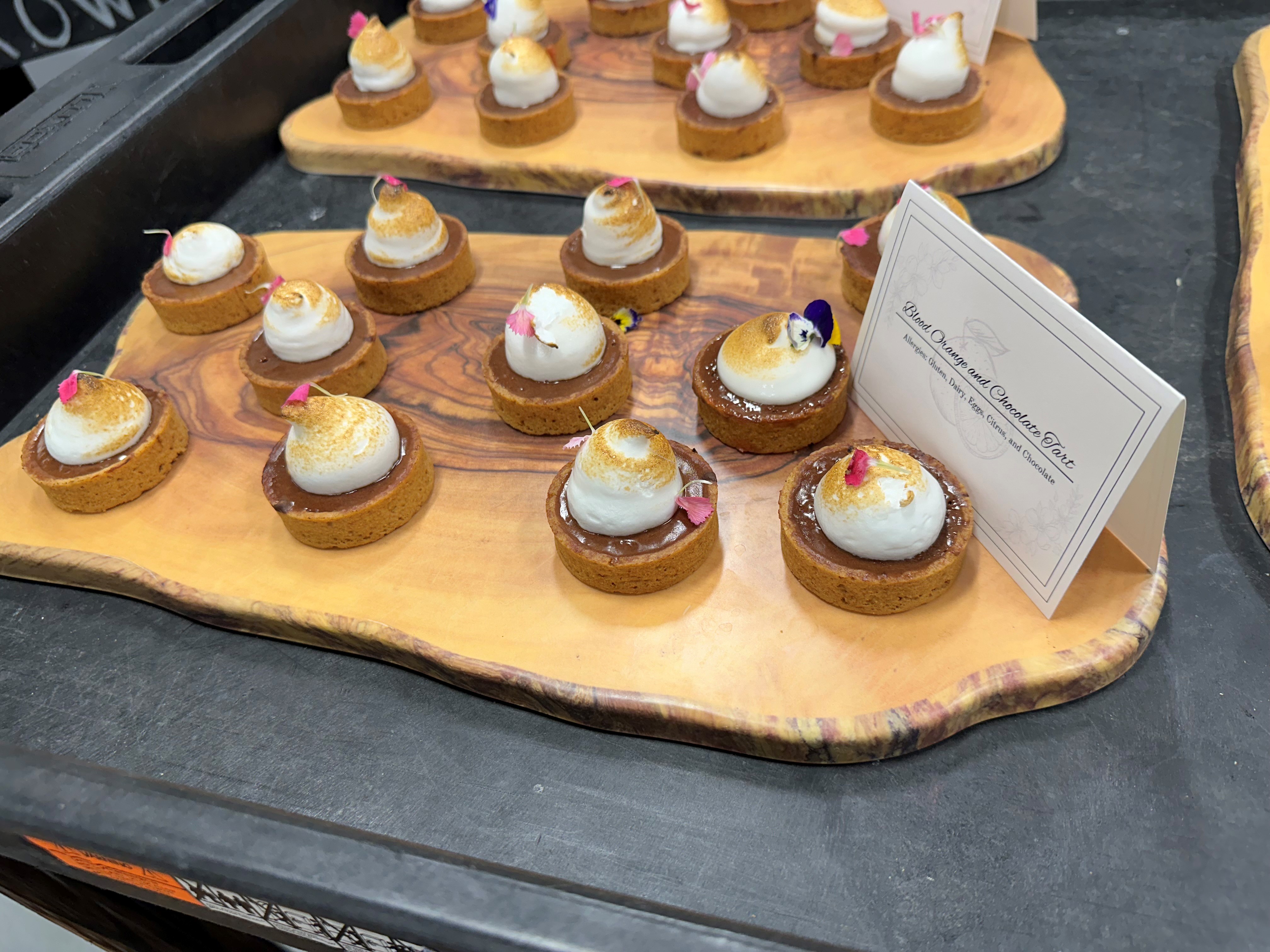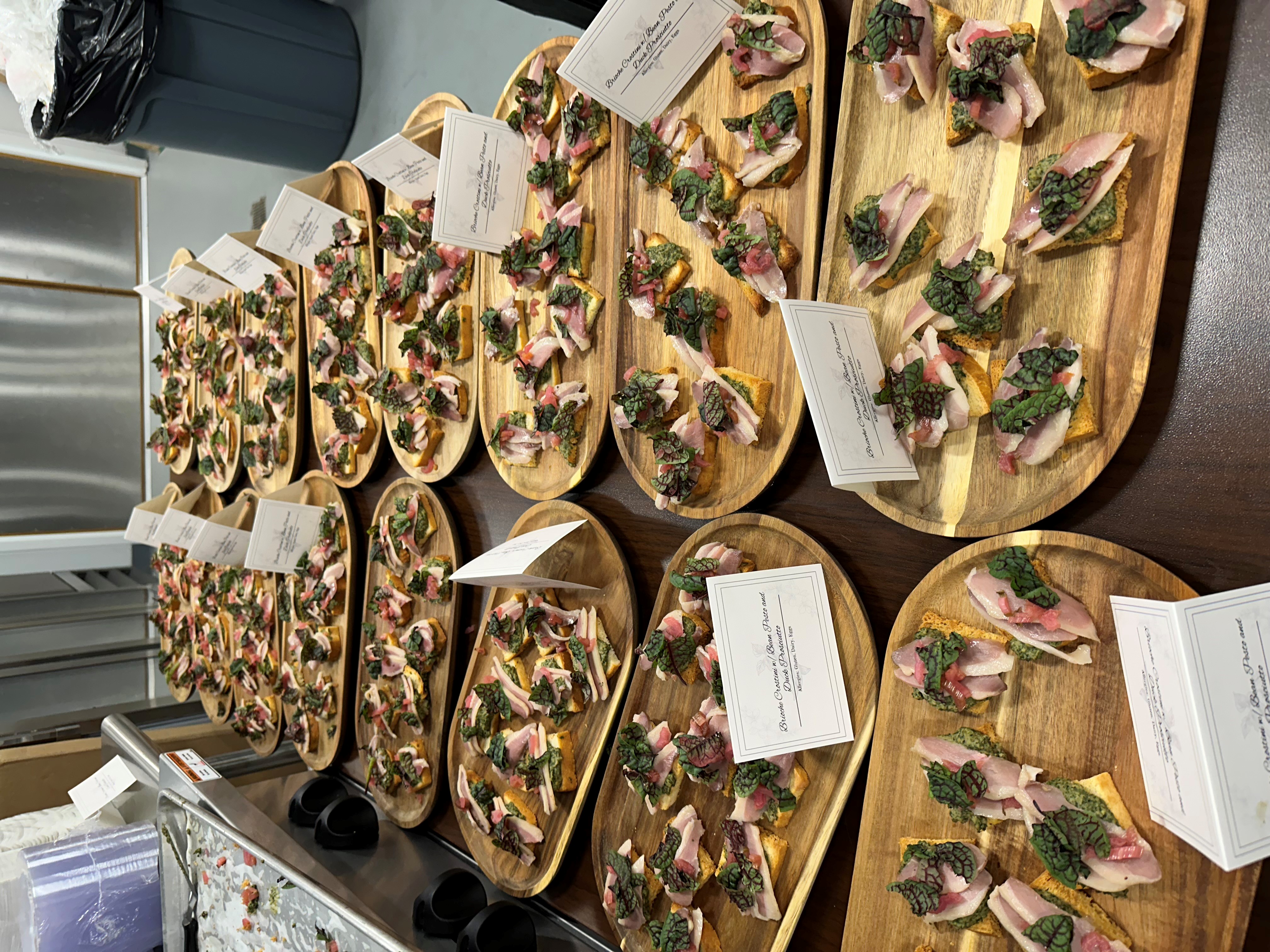content body
Pressure. For some people, pressure is unwelcoming and stressful but for College of Human Sciences student Mary Flavin, pressure is something she embraces when stepping into the culinary laboratories at the Tony & Libba Rane Culinary Science Center.
As a junior in the Horst Schulze School of Hospitality Management studying the Culinary Science option, pressure to perform her best and show off her culinary skills in the kitchen is starting to become second nature to Flavin.
This was on full display at a recent Elevated Education Exchange event in early February where Flavin spent several days prepping, cooking and perfecting a blood orange and chocolate tart and a Brioche crostini with a bean pesto and cured duck breast for a crowd of more than 200 people making both items from scratch.
Held in the Brown-Kopel Engineering Student Achievement Center, Elevated Education Exchange was a full-day event where the Office of Academic Insight, Academic Support, Biggio Center for the Enhancement of Teaching and Learning, Career Discovery and Success and University Writing provided opportunities for cross-campus networking, collaboration and professional development. In addition to two keynote speakers, the event featured posters that align with Auburn University's current Quality Enhancement Plan (QEP), "AUBURNACHIEVE," which places a considerable emphasis on student career outcomes. Between all of this, Flavin’s job was to help curb attendees’ hunger relying on her culinary skills and experience.
“It was stressful, but stress is natural when it comes to that big of a responsibility and something that I’ve never done before,” Flavin said. “I’ve just never been left and it’s like ‘OK, you’re going to run this and this is your event. You need to figure out the costs and the amount needed to feed 200 people.’ There were a lot of learning experiences, but I think stress helps me a little bit because it gets me focused and I know that it’s a part of the job and part of the experience.”
Prior to working the Elevated Education Exchange event, Flavin was able to lean on her previous summer experiences working at Greenbrier in West Virginia and at Blackberry Farm in Tennessee where she worked large catering events such as weddings. In addition, she has worked at the Masters Tournament in Augusta, Ga. These internships and experiences were made possible through her studies in the College of Human Sciences.
“I think stress helps me a little bit because it gets me focused and I know that it’s a part of the job and part of the experience.”
Encouraging Flavin to cook for the event and helping with some of the finer details was College of Human Sciences Associate Professor and Director of Culinary Science Dr. Mark Traynor. In addition, Traynor presented at EEE where he discussed the second phase of a virtual simulation environment project which involves the development of a fully virtual reality simulation. The project is funded by the AUX: Immersive Learning Experiences Grant at Auburn University and the overall goal of this initiative is to enhance student learning engagement, promote active learning, and improve student knowledge and competence in food safety and sanitation.
“Dr. Traynor and I collaborated and came to the conclusion that one sweet food item and one savory food item would satisfy a wide range of palates resulting in two delicious snacks,” Flavin said. “He gave me a lot of freedom for what I wanted to do but he helped a lot with the finer details like the exact dates and times for things to be completed.”
Flavin also worked with Horticulture graduate student Mackenzie Pennington prior to the event, where she was able to take a tour various green houses and the rooftop of the Tony & Libba Rane Culinary Science Center to choose the right produce for the snacks. The end result–two delicious food items where attendees raved about the taste and attention to detail.
“The last 30-40 minutes after putting it all together and seeing it was probably the best part for me,” Flavin said. “Then just being able to answer questions because I love being able to explain what I’ve done because people get excited about food. A lot of people don’t know about food and the world of it and what it takes to make it so you kind of see a sparkle in their eye when I explain something. To see that reaction and to see it all come together I think was the best thing for me.”
For more information on the Horst Schulze School of Hospitality Management within the College of Human Sciences, click below.
Humsci.auburn.edu/hosp


